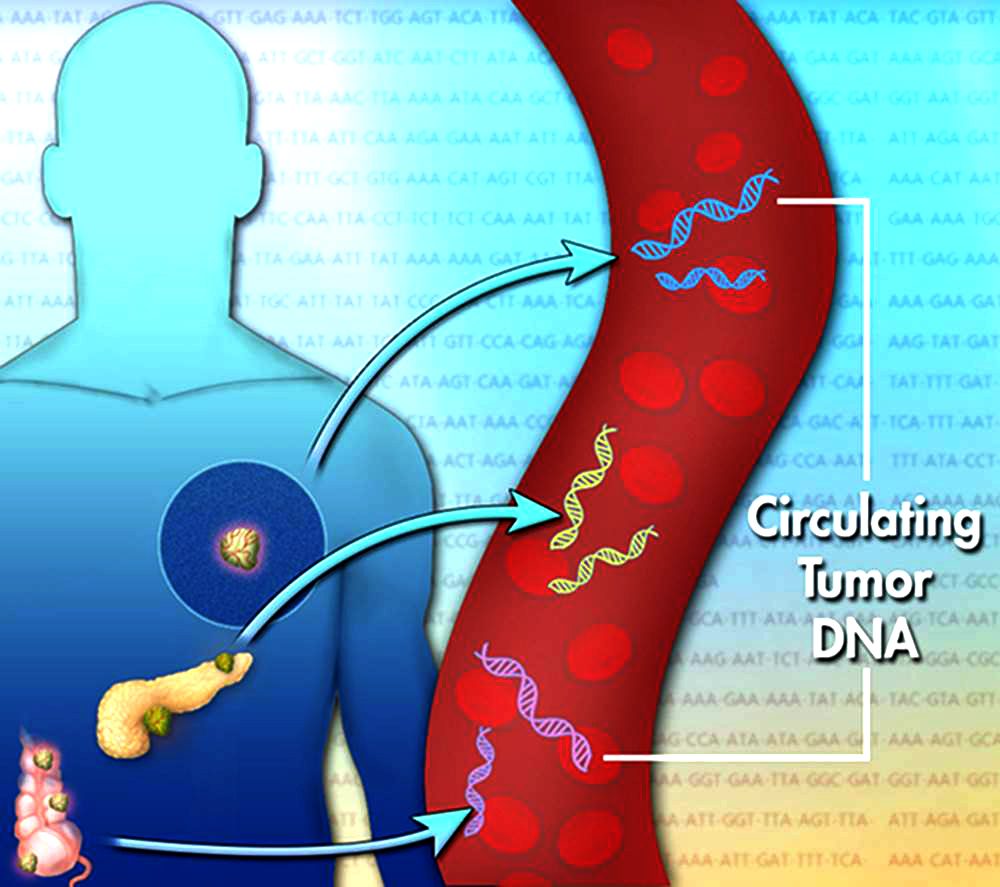Cancer is one of the leading causes of death in the world, with over 600,000 people expected to succumb to the disease in 2017 the United States alone.
But, exciting new findings indicate that medicine may soon be able to get ahead of the disease as researchers say they have taken a big step towards developing a test that can tell people if they have cancer long before the first symptoms show up.
According to results of the study conducted by a team of researchers at Johns Hopkins University, the blood test detected the majority of cancers in people with four of the biggest cancer killers: breast, colon, lung and ovarian cancer.
While the test is a long way from being used to screen for cancer, the study indicates that we have a way to get there, the team reported in the journal Science Translational Medicine.
“There is a lot of excitement about liquid biopsies, but most of that has been in late-stage cancer or in individuals where you already know what to look for,” said Dr. Victor Velculescu, professor of oncology and pathology at the Johns Hopkins University Kimmel Cancer Center.
“The surprising result is that we can find a high fraction of early-stage patients having alterations in their blood,” said Velculescu, who led the study team.
While results weren’t a home run, the test correctly identified cancer in the blood of more than half the patients who had been diagnosed with stage 1 cancer. It was even more accurate in finding late-stage cancers, but researchers are quick to point out the goal would be to catch cancer at its earliest, easiest-to-treat stage.
There were no false positives in 44 people who did not have cancer, they said.
There are currently several different liquid biopsies are already on the market, used to help track whether cancer treatments are working, but there’s nothing yet that can detect cancer in someone who has not yet been diagnosed.
Velculescu says that it’s easy to find tumor mutations if you know what to look for. “The challenge was to develop a blood test that could predict the probable presence of cancer without knowing the genetic mutations present in a person’s tumor.”
For the study, Velculescu and his team developed an approach called targeted error correction sequencing (TEC-Seq for short).

“We have used this approach to examine 58 cancer-related genes,” the team wrote in their report. The method involved deep sequencing – sequencing DNA 30,000 times over to look for mutations in DNA from tumor cells that float in the blood.
Cancer patients had more of this DNA in their blood, the team found.
They identified 62% of the patients with stage I cancer – four out of eight colon cancer patients, and 90% of colon cancer patients with stage II, III or IV disease.
They got a positive in 45% of the lung cancer patients with stage I disease, 67% of ovarian cancer patients with stage I disease and 67% of breast cancer patients with stage I disease.
While these results are promising, they aren’t where they need to be just yet. The test still missed a large percentage of cancers and will need much improvement, Velculescu said.
He adds that the test will also have to be tried in larger groups of patients, and patients with different cancers. The first goal would be to try it in people at high risk of cancer but no symptoms yet – such as smokers, or people with cancer-causing gene mutations like BRCA mutations.
Catching cancer in its earliest stages could save many lives, he said. Cancer is the No. 2 killer overall in the United States.
”The survival difference between late-stage and early-stage disease in these cancers would account for more than a million lives each year worldwide,” Velculescu said.
To this point, the U.S. Food and Drug Administration has been very skeptical of blood tests that claim to diagnose the disease before people have symptoms.
While it appears we’re a long way out from blood tests being used to detect cancer from the start in the field, this is certainly an exciting advancement in medicine with the potential to save hundreds of thousands of lives.
If you found this article interesting, please share with friends and family by clicking the button below!




